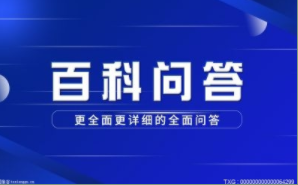Series Interview: Community with a Shared Future for Mankind
EP02: David Ferguson on how some western media's hostility will not stop the concept becoming an international consensus
In the summer of 2022, the 4th volume of Xi Jinping: The Governance of China was published. 2022 also marks the 16th year of its English editor, David Ferguson's life in China. Before becoming the English editor of such an important series, Mr. Ferguson had also worked as a reporter in China, dedicated to telling a more balanced story about the country, one that captures the truth with first-hand experience rather than hypothesis. Today, facing the drastic changes in the international community, we are very honoured to have a chance to speak with Mr. Ferguson, and hear his understanding of a global community of shared future.
 (资料图片仅供参考)
(资料图片仅供参考)
Q: So, Mr. Ferguson, thanks for joining us.
David Ferguson: I’m delighted to be here.
Q: Guided by the concept of a global community of shared future, China has done a lot to promote common prosperity for the world. However, sometimes the West, they seem to interpret China’s efforts in very different ways, calling China sometimes an aggressive threat to the international order. So, how would you comment, or what do you make of such comments from the West?
David Ferguson: Well, I think it’s a very accurate description of what is happening. And China has made immense efforts through BRICS, through the Belt and Road Initiative, through many, through respect for the Paris Accords, there are these sustainable development goals for 2030. China has made a huge effort to try and further world interests. And I think that the way it is portrayed in the west media is becoming increasingly hostile.
And I wonder if they don’t gag on the stanchion of their own hypocrisy. This is one side. The other side is China, trying to build a global community of shared future. But that is what they are up against, and as I said, it doesn’t leave me with huge reasons for optimism.
Q: Thank you, Mr. Ferguson. And also, do you see it as a possibility that the concept of the global community of shared future will become an international consensus across the world?
David Ferguson: Well, I think that is a very interesting question, because I would suggest that the concept of a global community of a shared future is already the international consensus across the people who actually represent the majority of the population. In developing countries, in Central Asia, in South America, in Global South, people already understand and look forward to a global community of shared future. They watch it attentively what’s happening in China. They marvel at China’s success. They want to understand the reasons for China’s success and they want to know what can be applied to their own situation, because you can never simply imitate another country’s model, you cannot imitate another country’s process. But as far as the concept is concerned, it’s already a consensus. As far as the will is concerned, it’s there among, as I say, the countries who represent the most of the population. Where the issue lies is among the developed, largely western countries.
And I think that China has to invest a much greater effort in trying to talk to people, in trying to talk to the mass audiences in western countries, in trying to engage with them on some emotional level, and in trying to win hearts and minds.
责编:张靖雯































































































